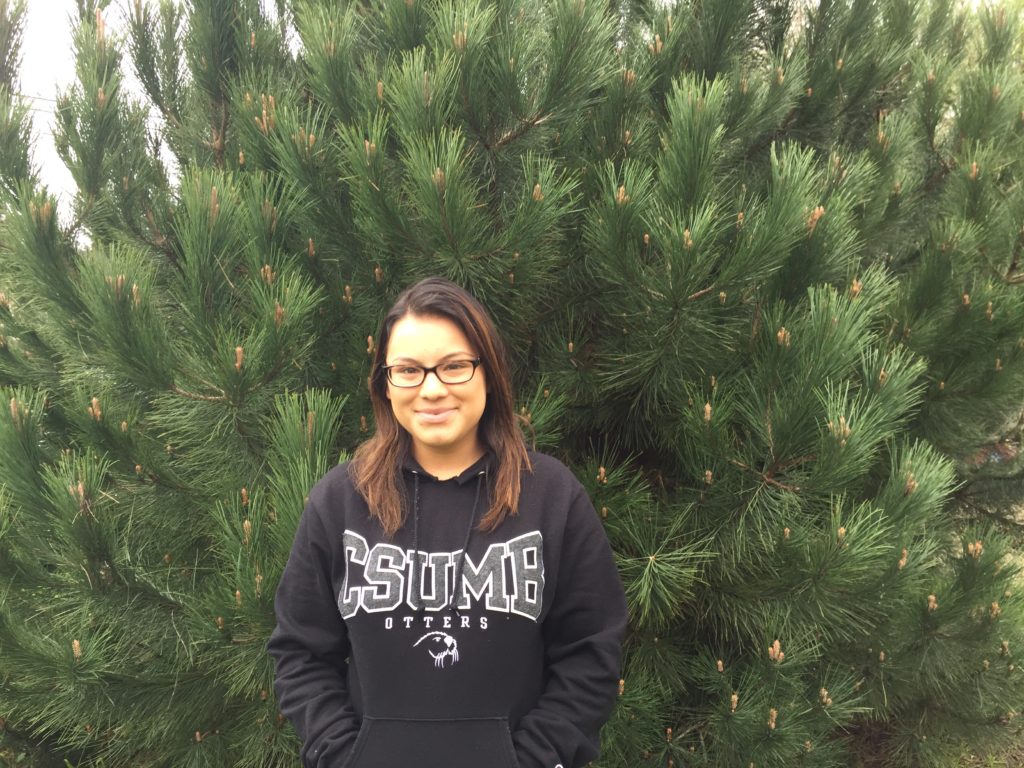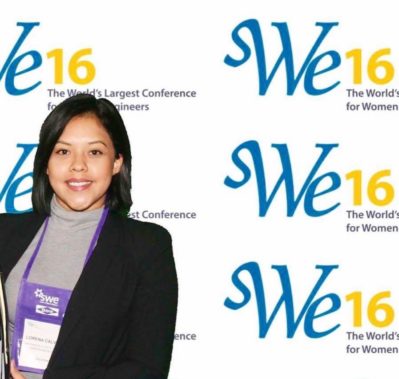
Corina Rodriguez had her plan: finish high school, enroll in a four-year university, graduate with a bachelor’s degree, embark on a career in health care administration and start a family.
But life had other plans. Rodriguez became pregnant in her senior year at Pescadero High. A few months later, she was a new mother and a wife. Rather than enroll at a four-year university, she went to three different community colleges over the next three years. She did this while raising an infant and working full-time to pay her school, rent, food and gas.
“We obviously all have suffered. It’s very hard,” says Rodriguez, now 21.
She thought about dropping out more than once. But her husband and parents pushed her to stay in school. Her parents, both Mexican immigrants, never went to college but made sure that all their children would. “Ever since I can remember, my parents drilled it into me: you’re going to go to college. You’re going to get a bachelor’s degree,” recalls Rodriguez.
Because of the support of her family and her own will to succeed, a bachelor’s degree is within reach for Rodriguez now. In late January, Rodriguez enrolled at California State University, Monterey Bay. She has new professors, new classmates, and a new major in Collaborative Health and Human Services with a concentration in Public Administration.
She wouldn’t have been able to accomplish it—any of it—without her scholarships from Puente, generous financial support from anonymous local donors, and regular grants from the Consulate General of Mexico in San Francisco.
This year, Puente received a record $22,000 grant through the Institute for Mexicans Abroad, a Mexican government program that supports continuing education for Mexicans abroad and their descendants. (The Spanish-language name is El Instituto de los Mexicanos en el Exterior, or IME.) The partnership benefits both adult learners and college-age students. The adult learners earn a stipend for near-perfect class attendance in Puente’s adult education programs, which include ESL.
To be considered for an IME grant, college students must have graduated from Pescadero High, must show financial need, have a solid GPA, and must be enrolled in college at least part-time. They must also submit a statement about their involvement and leadership in their community or school. Students need to provide proof of Mexican or Mexican-American descent, although the consulate has expressed some flexibility for other students who deserve the scholarship.
Eight impressive undergraduate students, including Rodriguez, earned IME scholarships this fall; Rodriguez has received this scholarship every year since graduation. When she enrolled at CSU Monterey Bay, she was also shocked to receive a $5,000 gift from an anonymous local donor to help her pay for it.
In recent years, Puente has heard from donors who want to help local students with scholarship funding. In response, Puente has compiled a series of student profiles that help donors get to know the extraordinary youth in their midst, including their career aspirations, their paths to college, and the often-immense challenges they have already overcome.
“There’s something to be said about truly believing in our students’ ability to succeed. When you literally put your money where your mouth is, you’re showing these students you’re willing to make an investment in their future,” says Lizeth Hernandez, Education Director for Puente.
Puente has been committed to giving graduating seniors a financial springboard to college through its Youth Bridges Award, an internal scholarship program that rewards local students who have gone through Puente’s Youth Leadership and Employment Program.
When students graduate, these and other scholarships go a long way toward making college affordable for students whose families cannot afford to support them at all. In fact, the financial margins are so tight for some students that extra money for an on-campus parking permit, or a $300 textbook, can mean the difference between staying in school and dropping out, says Hernandez.
“As sad as it is, money really does make a difference in terms of access… And we’re going to do everything we can in terms of providing access,” she says.
Despite all the help she’s received, Rodriguez fears she’ll need to go into debt next semester to pay her college fees. “It’s beginning to get hard,” she says.
Rodriguez works long hours three days a week as a Community Resource Navigator at Puente, helping locals get signed up for health care coverage, food stamps and other essential services. (She is leaving Puente to commit herself to the heavy workload at school).
The other two days, she drives 150 miles roundtrip to CSU Monterey Bay. Her son is three years old now. Her schedule is grueling, but she loves her new school and she knows that one day, her son will understand why she worked so hard to get her education. “I want to show the world and my son that we can do it,” she says.
“I think I can be someone,” said Rodriguez in 2013, when we interviewed her about her future. Her life nearly took another detour in community college, when she thought she should give up on a bachelor’s degree and pursue a certificate in radiology so she could finish her studies and go start earning an income.
When she told Kerry Lobel about her decision, Puente’s then-Executive Director surprised her. “She said, that’s awesome—but knowing you, that’s not where your education is going to stop.” Lobel has known Rodriguez since she was a girl. She felt the young woman would never settle for anything short of her real goals. “I feel like Kerry knows me more than I know myself, sometimes,” laughs Rodriguez.
Lately, though, she finds herself forming a brand-new goal: a future master’s degree. For someone whose life already looks different than expected, the notion of going beyond the expected has strong appeal.
“A master’s is definitely now in my brain, and it won’t be going away,” she says. “I like being the kind of person who, when someone says you can’t do that – I say: Oh, yeah? Watch me. I can.”
Puente is seeking support for its Youth Bridges Program — every dollar goes to provide scholarships to graduating Pescadero High School students that have worked at Puente. Make your contribution here.




